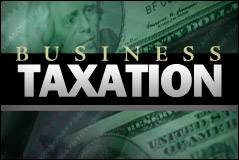Media
The Unseen Effect of Cracker Credits
 Gov. Tom Corbett is reportedly pushing a targeted tax credit for Shell and other companies that locate an ethane processing plant—often called a “cracker” plant—in Pennsylvania. The credit would total $1.7 billion over 25 years (or $67 million per year).
Gov. Tom Corbett is reportedly pushing a targeted tax credit for Shell and other companies that locate an ethane processing plant—often called a “cracker” plant—in Pennsylvania. The credit would total $1.7 billion over 25 years (or $67 million per year).
The announcement of Shell’s decision to locate in Pennsylvania was much celebrated, reportedly bringing 10,000 direct and related jobs to the state. But unfortunately this analysis doesn’t take into account the net effect of offering targeted tax breaks.
Pennsylvania’s corporate income tax of 9.99% is the highest flat rate among the 50 states (this on top of the U.S. corporate tax rate, the highest in the industrialized world). A Tax Foundation analysis finds Pennsylvania has the highest business tax cost for mature firms, and second-worst for new companies.
The proposed tax credit will make Pennsylvania more attractive for Shell, but doesn’t improve the economic climate for thousands of businesses, large and small, that exist in the state, or for companies or entrepreneurs in every other industry.
Pennsylvania has long been a leader in “economic development” spending—both direct subsidies and tax credits—but we have been a laggard in job growth. Moreover, a Legislative Budget and Finance Committee in 2010 on Pa.’s tax credit programs found there is little hard evidence or monitoring of job creation from these incentives.
These targeted tax breaks and corporate welfare subsidies prevent across-the-board tax rate reductions that would benefit all Pennsylvanians—attracting new businesses from all sectors, and allowing existing businesses to expand in Pennsylvania. Ditching this tax credit, and eliminating existing tax breaks to reduce tax rates, would go further in creating jobs in the Keystone State.